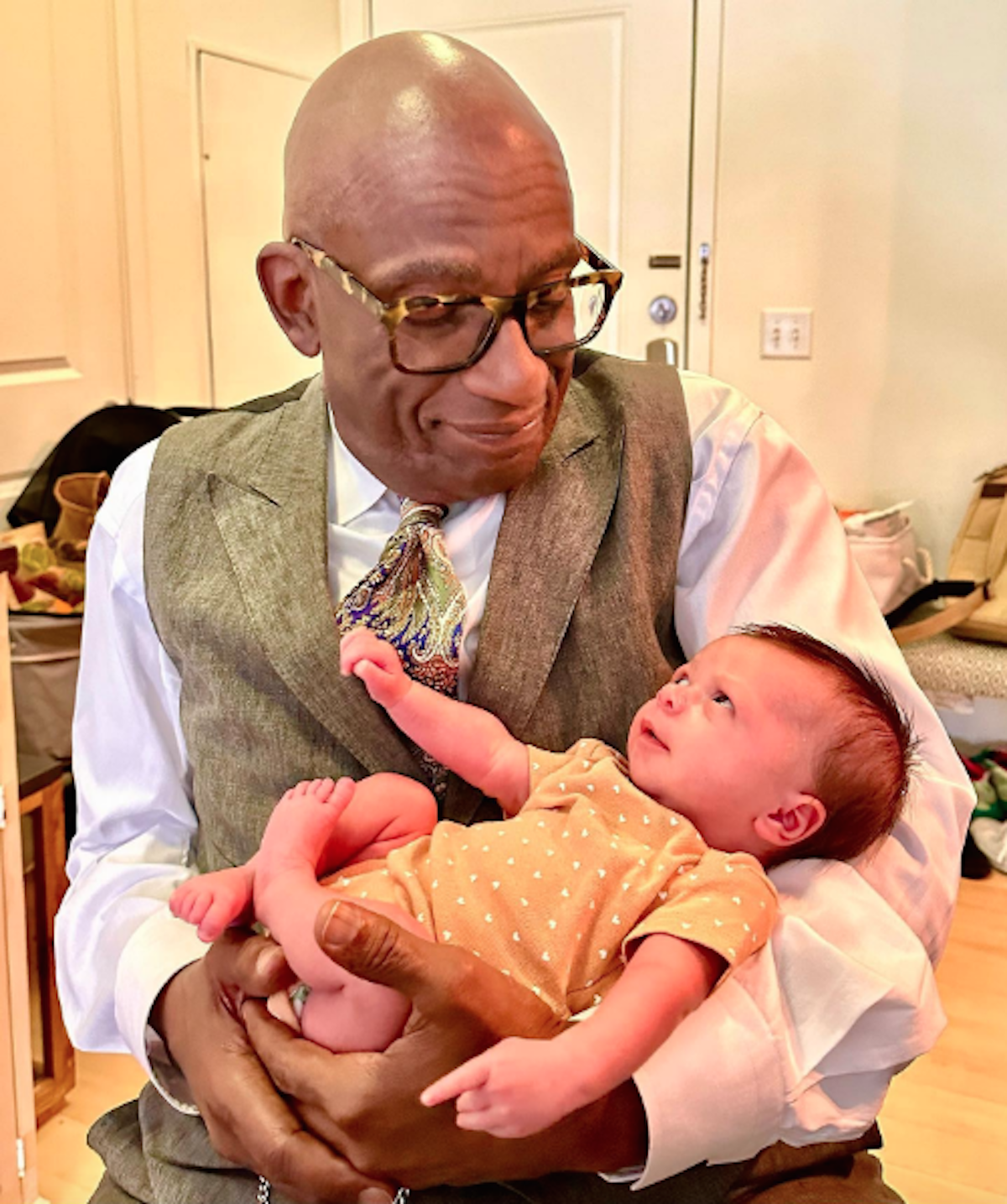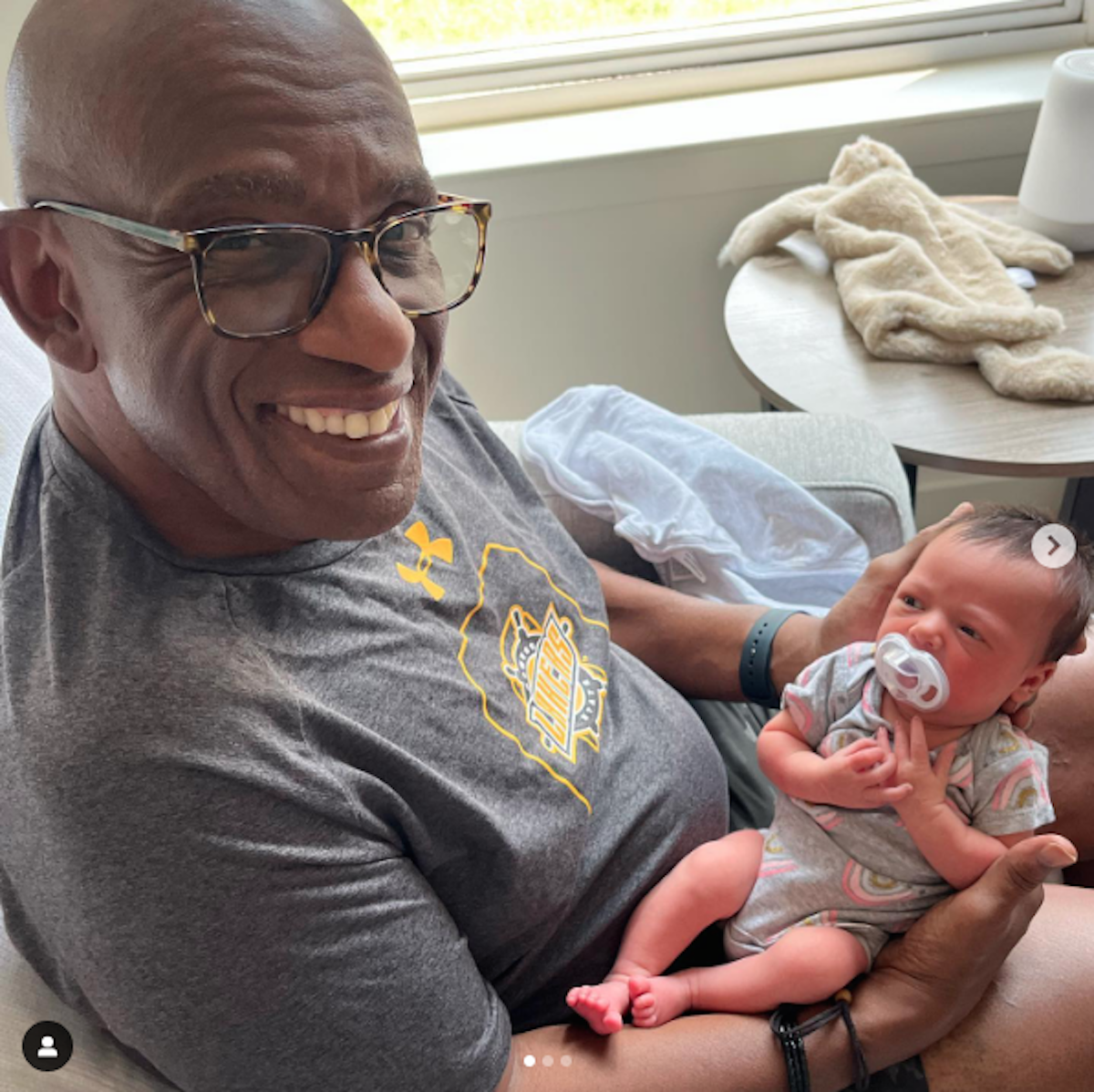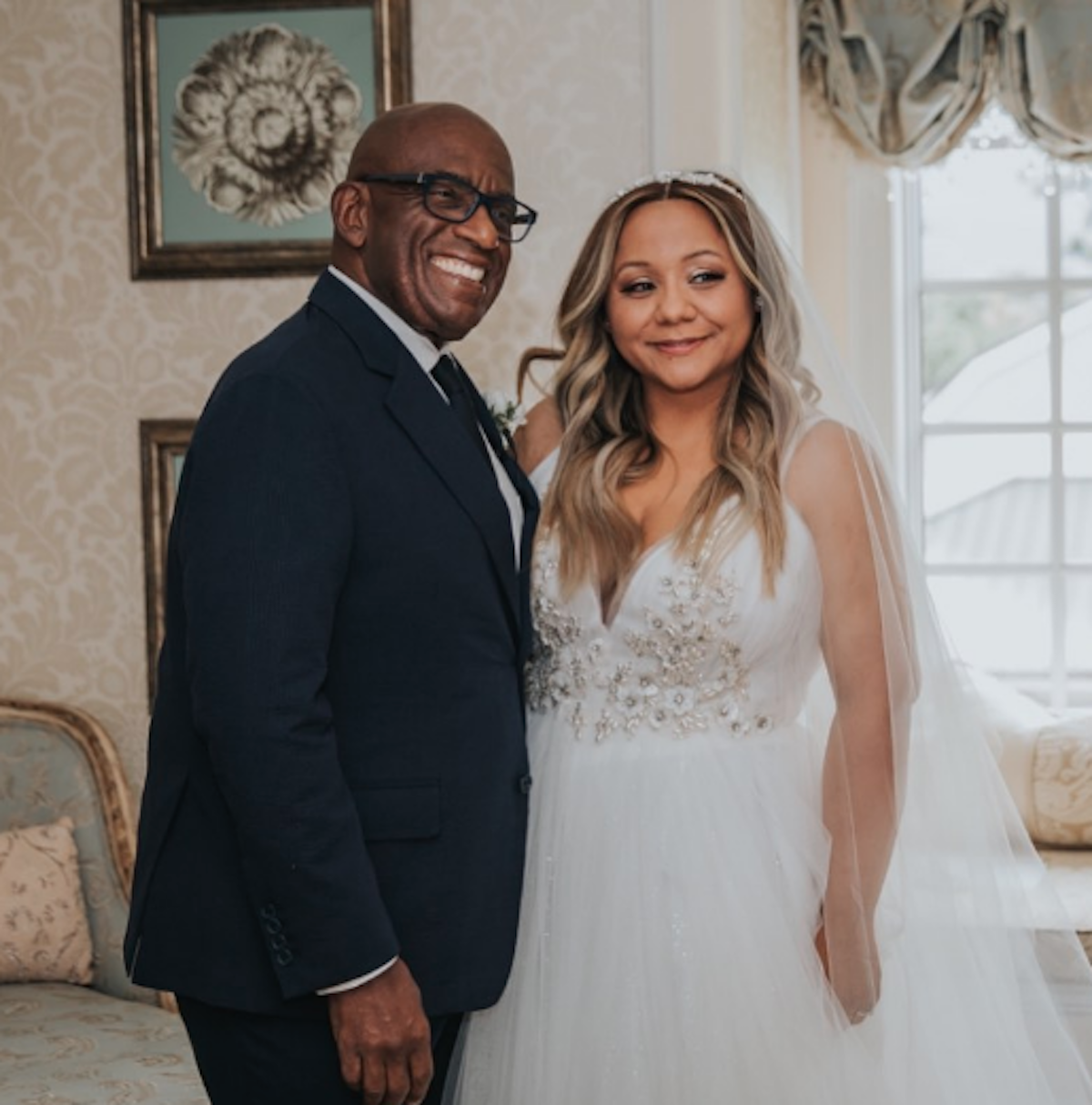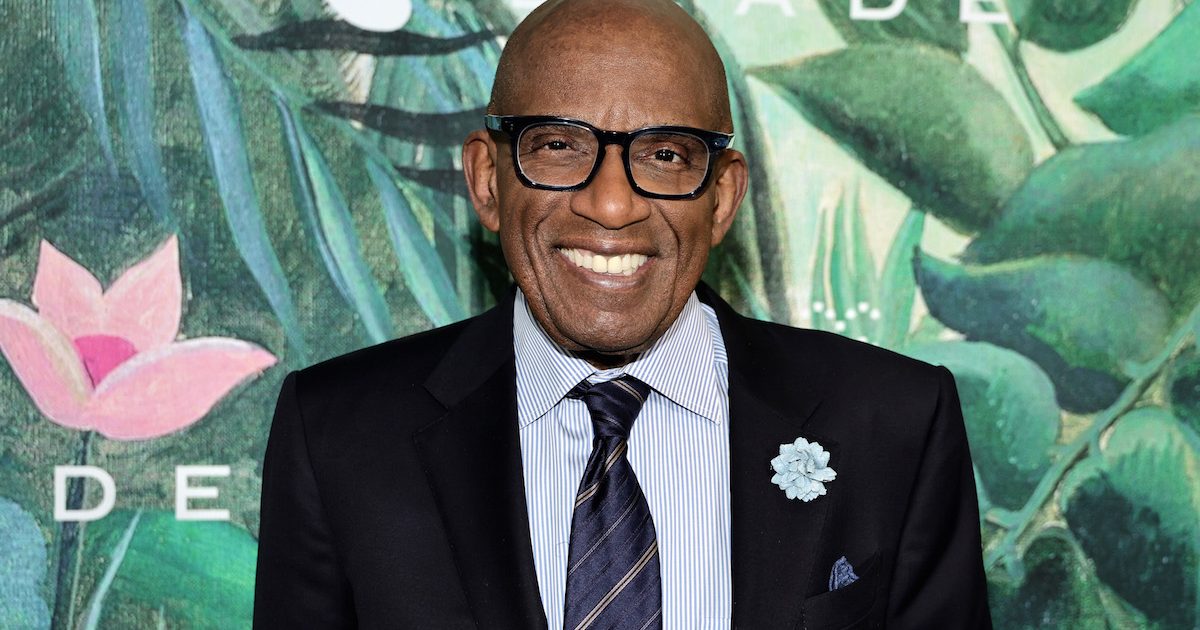Celebrating Milestones After Cancer
- Weatherman and anchor Al Roker, 68, is relishing in life after battling prostate cancer by celebrating his new role as a grandfather to his incredibly adorable grandchild Sky Clara Laga.
- The “TODAY” show anchor appeared to be enamored with Sky as he held her in his arms in his most recent social media post.
- Roker, a father of three, has been spending time with his 36-year-old daughter Courtney Roker Laga’s baby daughter since she was born last month.
- Reaching milestones during or after a cancer battle is huge. These events like getting engaged, reaching another birthday, or celebrating the birth of your first grandchild may mean even more than they did previously, so it's important to take them all in and celebrate all that you've overcome.
- Additionally, having family support (like Roker does) before, during and after a cancer diagnosis is an important part of a cancer warrior's journey to recovery.
The “TODAY” show anchor, who was diagnosed with prostate cancer in 2020 and then later treated for dangerous blood clots at the end of 2022, appeared to be enamored with his first grandchild in his most recent social media post.

“Welcome to the world, Sky Clara Laga. In love all over again. Thank you, Courtney and Wes for such a perfect blessing,” the weatherman captioned the post, in which he shared two close-up photos of the baby girl.
“You baby is beautiful. Already planning the ways to spoil her and then hand her back.”

Just last week, Roker shared another photo of himself smiling with his granddaughter in his arms, captioning the post, “Spent the afternoon visiting @ouichefroker @thatteacherwhodjs and my #grandaughter Sky Clara. Held her for about 2 hours and couldn’t stop marveling at that.”
It’s clear Roker is soaking in the good times and being present in his role as a grandfather to him and his ex-wife Alice Bell’s daughter’s new child.
His 36-year-old daughter Courtney Roker Laga, gave birth to her daughter on July 4 at the Holy Name Medical Center in New Jersey.
Roker is a proud father of three and grandfather of one, whose shares his two other kids, his 21-year-old son Nicholas Roker and daughter Leila Roker, 24, with his wife Deborah Roberts, 62.

Al Roker’s Prostate Cancer Battle
Roker, who suffered from blood clots last year, was diagnosed with prostate cancer after almost delaying a doctor’s appointment because of the COVID-19 pandemic.
“It's a good news-bad news kind of thing,” Roker told “TODAY.” “Good news is we caught it early. Not great news is that it's a little aggressive, so I'm going to be taking some time off to take care of this.”
He shared the news of his diagnosis on the TODAY show in November 2020 and explained that he would be having surgery.
“My first reaction was, 'I just want this out. I don't want to do radiation,'” Roker previously told SurvivorNet of the prostate cancer that was growing inside his body. "At the end of the day, I thought, 'surgery first,' then I thought, 'no, maybe radiation,' then I went back and (said), 'no, surgery.' That was that. Once I make a decision, I don't really second guess it.”
His procedure took place in November 2020 and resulted in the removal of his prostate and some surrounding tissue and lymph nodes. This type of surgery a radical prostatectomy is known to effect a man's sexual function since it requires removing the seminal vesicles.
"There really was no pain," Roker said on how he felt post-operation. "The biggest issue, obviously, is sexual function, and there's treatment for that. I'm happy to say everything's working fine."
Expert Resources on Prostate Cancer
- Adjusting to Your New Normal After Prostate Cancer Diagnosis
- An Overview of Prostate Cancer Surgery
- Bladder and Prostate Cancer Misinformation is ‘Common’ on YouTube; How to Find Quality Intel
- Considering Chemotherapy for Advanced Prostate Cancer
- Could A Urine Test Be The Future of Prostate Cancer Screening? Leading Experts Weigh In
- Debating How to Treat Prostate Cancer: A Significant New Study Argues for Surgery Plus Radiation
- Don’t Believe the Hype: Do Your Own Research on Prostate Cancer Treatment
The biggest issue for Roker actually came during surgical recovery.
"To be honest, the hardest part really there's a little incontinence (loss of bladder control) to begin with that eventually goes away to me," he said. "The hardest part was that initial week after surgery where you're wearing a catheter (a soft tube that drains urine from the bladder). But even that was not onerous, it's just a little inconvenient, but you know that it's temporary.”
When Should I Get Tested for Prostate Cancer?
Since then, Roker has been given consistent 'all-clears,' though he'll be doing lifelong testing to make sure the cancer does not return.
And even Roker's cancer surgery was not the first time he had a major operation for the sake of his health. In 2002, Roker, who had long struggled with his weight, opted to have gastric bypass surgery to drastically limit his food consumption. Since that surgery and his continued efforts to live a healthy life, he's lost over 100 pounds.
PSA Screening for Cancer
Since beating cancer, Roker has continued to urge men to undergo prostate-specific antigen (PSA) tests, which check for prostate cancer. These tests seek out PSA in the bloodstream, which could reveal whether someone has prostate cancer.
RELATED: Staggeringly Higher Prostate Cancer Rates for Black Men
Anyone with a family history of prostate cancer is urged to start the cancer screening process earlier than the average recommended age. Currently, men with an average prostate cancer risk are advised to start getting screened at 50 years old. Those more likely to get prostate cancer should begin screening at age 40 or 45.
Urologic oncologist at Cedars-Sinai, Dr. Edwin Posadas, says it's important to notify your doctor about your risk factor, such as having a family history of prostate cancer. He tells SurvivorNet in an earlier interview, "We know as doctors that there are certain men who are at high risk for having prostate cancer. Men of African descent, for example, fall immediately into a high-risk category."
Dr. Posadas continues, “Men whose fathers or brothers had prostate cancer are at two to three times the risk of the general man living in America of having prostate cancer. Those pieces of information are critical to bring forward in an examination when you're seeing your doctor.”
There's No One Definitive Symptom for Prostate Cancer, But There Are Clues
Meanwhile, a new study published in European Urology recently identified nine new genetic risk factors for prostate cancer, seven of those markers being found largely or exclusively in men of African ancestory. It was reportedly the largest genetic study of prostate cancer in men of African descent.
So it's important to talk to your doctor about your unique history and risk factors for prostate cancer. It's always best to talk with them about the right course of action and always advocate for your health going into every doctor's appointment with a plan of action.
Roker told SurvivorNet in an earlier interview that finding the right health advocate for you is key when facing a cancer battler, “My message is to try to find the advocate you need, the help you need. Don't take no for an answer, and know that there are people who want to help. There are organizations that are willing to help, but don't give up.”
Reaching Milestones as a Cancer Survivor
Reaching milestones during or after a cancer battle is huge. These events like getting engaged, reaching another birthday, or celebrating the birth of your first grandchild may mean even more than they did previously, so it's important to take them all in and celebrate all that you've overcome.
I'm Able to Be Here For More Milestones One Cancer Survivor's Incredible Story
Chrissy Degennaro is a cancer warrior determined to keep enjoying these precious milestones. She has been battling a rare blood cancer called multiple myeloma for 14 years, and was first diagnosed when she was just 36 years old with a 2-year-old son. When she was given her diagnosis, she almost expected to not be able to see him enter kindergarten. But thanks to 27 rounds of chemotherapy, two stem cell transplants, a CAR-T cell trial and two CAR-T cell transplants over following 14 years, she's able to keep making memories with her family.
RELATED: I Got to Dance With My Daughter at Her Wedding: Steve Silverstein's Cancer Story
"You know, I do live one day at a time," Chrissy previously told SurvivorNet. "Now, maybe I can go a week, a month, but things are looking pretty good. I'm able to be here for more milestones for my son, for more holidays, more birthdays. I do feel like I have had another chance at life."
Family Support During Cancer Journey
Roker’s battle with prostate cancer seems to have made milestones mean even more for the famous weatherman.
SurvivorNet experts say having family support before, during, and after a cancer diagnosis is an important part of a cancer warrior's journey to recovery.
Dr. Shelly Tworoger, a researcher at Moffitt Cancer Center told SurvivorNet that “there's a number of common things cancer patients can experience, such as anxiety, depression, financial toxicity, social isolation.”
Knowing you have loved ones by your side at every step helps you process those emotions and cope with your new reality during your journey.
Contributing: SurvivorNet Staff
Learn more about SurvivorNet's rigorous medical review process.


